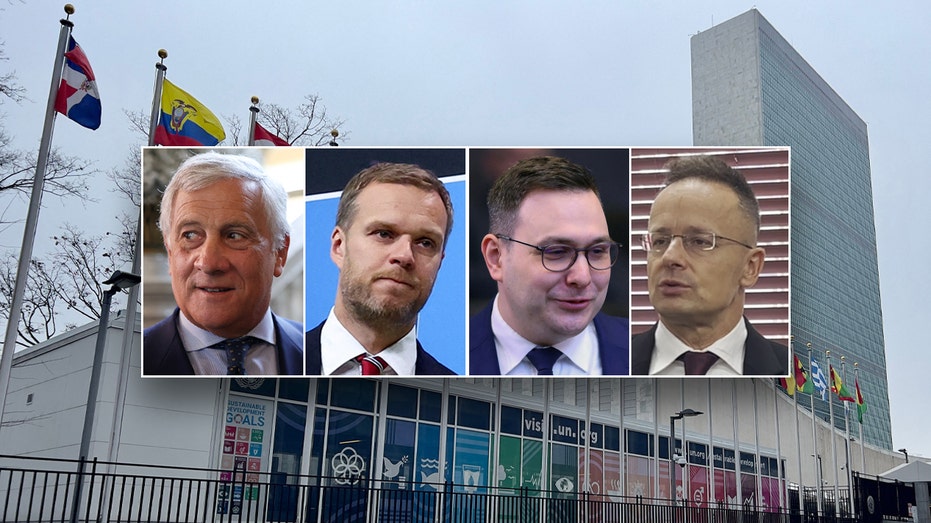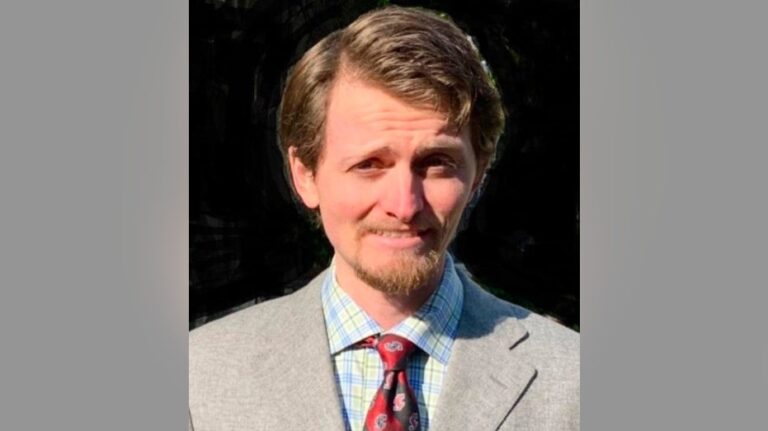
The European Union allows for free movement between member states, making any immigration policy on national borders difficult to enforce while the continental border remains porous.
UNITED NATIONS, New York – European officials attending the United Nations‘ High-level Week told Fox News Digital about the need to clamp down on illegal or “irregular” immigration, touting success with stringent policies as members of the bloc continue seeking deals to secure the continent.
“There are a lot of agreements with the countries in North Africa for reducing illegal immigration,” Italian Foreign Minister Antonio Tajani explained. “We are in favor of legal immigration, but the agreement with this is the key for reducing the illegal immigration.”
“We are fighting against crime because the human traffickers are the same trafficking drugs and weapons,” he added. “For this, we need to fight against crime. To beat the crime, it is also a very important instrument for reducing illegal immigration.”
Europe experiences a significant level of migration from North Africa and parts of the Middle East, which culminated in a refugee crisis between 2015 and 2016 that saw countries such as Germany struggle to handle the level of incoming immigration.
Last year saw another spike, with the European Union Agency for Asylum determining that October 2023 saw its biggest spike in seven years and comparing it to the levels seen during the previous refugee crisis.
To combat this, countries have enacted localized immigration policies while the European Union worked out deals with countries such as Tunisia, Libya, Syria and Afghanistan. The Russian invasion of Ukraine added to this pressure by displacing roughly 4.4 million people who sought refuge in neighboring countries.
Germany and Italy received the most applications for asylum seekers – about 930,000 asylum seekers await a first instance decision by the end of May 2024. Italy’s right-wing government introduced a raft of immigration reforms to deal with the influx, including an 18-month detention period and new centers to house asylum seekers.
The island of Lampedusa, Italy’s southernmost island, receives thousands of migrants every month from Tunisia. New processing centers struggle to keep up with the demand, with one worker last year calling the situation “complex.”
No one understands the complexity of the immigration issue better than Hungary, which remains locked in a legal dispute over its own policies: The European Court of Justice in June ordered Hungary to pay a fine of up to 200 million euros for breaking the bloc’s asylum rules, and an additional 1 million euros per day.
Hungary also this month started exploring legal options to force the EU executive commission to pay costs spent on helping enforce the Schengen (or free-movement) zone of the European Union.
Hungarian Foreign Minister Peter Szijjarto argued that his country’s approach has faced backlash since the ruling Fidesz party took power 14 years ago, arguing that Brussels ultimately seeks migration in comparison to the various countries that make up the bloc.
“We totally differ with Brussels, and we don’t have the intention to satisfy Brussels, to be honest,” Szijjarto said. “We don’t have the intention to satisfy the liberal mainstream. We have only one intention: To satisfy the Hungarian people.”
HUNGARIAN FM RECALLS STRONG TRUMP ADMIN ‘EXPERIENCE,’ CLAIMS ‘OUR HOPE IS ALL’ ON FORMER PRESIDENT
“I do believe that Brussels and some of the member states of the European Union and some European politicians, even in the recent past, have a very clear responsibility when it comes to the migratory crisis, because Brussels has been carrying out a pro-migration policy, and it is absolutely intractable if you look at how they speak about this whole phenomenon,” Szijjarto said.
“They say that migration must be managed – no, migration must be stopped, and as long as you manage migration, it means you support migration, you encourage migration, you encourage people to leave their homes,” Szijjarto continued. “This is something that we cannot support and cannot stand.”
“Our position is very good: Migration must be stopped,” he added. “Another way to put it: All people in the world, all human beings, must be given the right to have a safe and secure life where he or she has been living, and this means that instead of encouraging people to hit the road, the circumstances of everyone should be ensured to be able to live where he or she was born.”
The challenge remains how to limit that migration when the whole bloc allows free movement between members. Germany attempted to deal with this issue recently by instituting its own hard borders, which some experts have warned could lead to a “chain reaction” across the continent, according to German outlet DW.
Czech Foreign Minister Jan Lipavsky acknowledged that the issue is a “difficult question” due to the balance of free movement within the union against the need for stronger external borders, saying that it puts “a lot of pressure on us.”
“I think it’s a clear show that Europe has lost its ability to project geopolitical power, especially into Africa and the Middle East, because we are basically not able to do any kind of measures to stop this irregular migration,” Lipavsky said.
“When somebody who really has no right for asylum is in Europe, there are no true mechanisms, for example, for our populations,” he added. “So they will need to put more effort into that, definitely.”
Lipavsky praised Germany’s decision to pursue stronger migration policies, saying that “it’s major for Europe” that the country “moved a little bit” toward the more strict policies of countries like the Czech Republic.
EL SALVADOR’S BUKELE SLAMS CENSORSHIP AS HE TOUTS HIS COUNTRY’S TURNAROUND: ‘WE HAVE FREED MILLIONS’
Leaders have keenly pursued solutions to the immigrant crisis as the issue remains a key driver in elections: Earlier this year, right-wing parties made surprise gains in the European Parliament, with many succeeding in getting a few members added to the governing body.
Lithuanian Foreign Minister Gabrielius Landsbergis admitted that while he believes the surge in right-wing support is more a system shock than a symptom of a growing movement, the results indicate “a lot of anxiety in the population” when it comes to certain “legitimate” issues, including migration.
“The problem is guarding… external European borders,” Landsbergis said. “When we face the instrumentalized migration, where Lukashenko started bringing thousands of migrants from the Middle East and Northern Africa to our borders, basically pushing people into the European Union as a tool – to put political pressure on us because he doesn’t like our policies and other things – we adhere to the rules.”
Lithuania, along with Poland and Latvia, combated the weaponized influx of migrants from Belarus in 2021 by building a roughly 370-mile-long steel wall with barbed-wire that is “electronically controlled.”
Landsbergis claimed the border is “probably one of the better controlled borders within external borders of EU,” which includes border guards and increased resources after the “whole country… shifted the gear.”
“This is a problem, and we have… a responsibility to deal with the problem,” he said. “The easiest thing to do is to let the people in – mostly, they would like to reach the Netherlands, they like to reach Sweden, they like to reach Germany… and you say, OK, it’s impossible for me to go to the border. We didn’t do that.”
“We’re guarding the border, adhering to the rules, and I think we’re quite successful that the pressure from the border on Lithuania is minimal now.”
The Associated Press contributed to this report.





